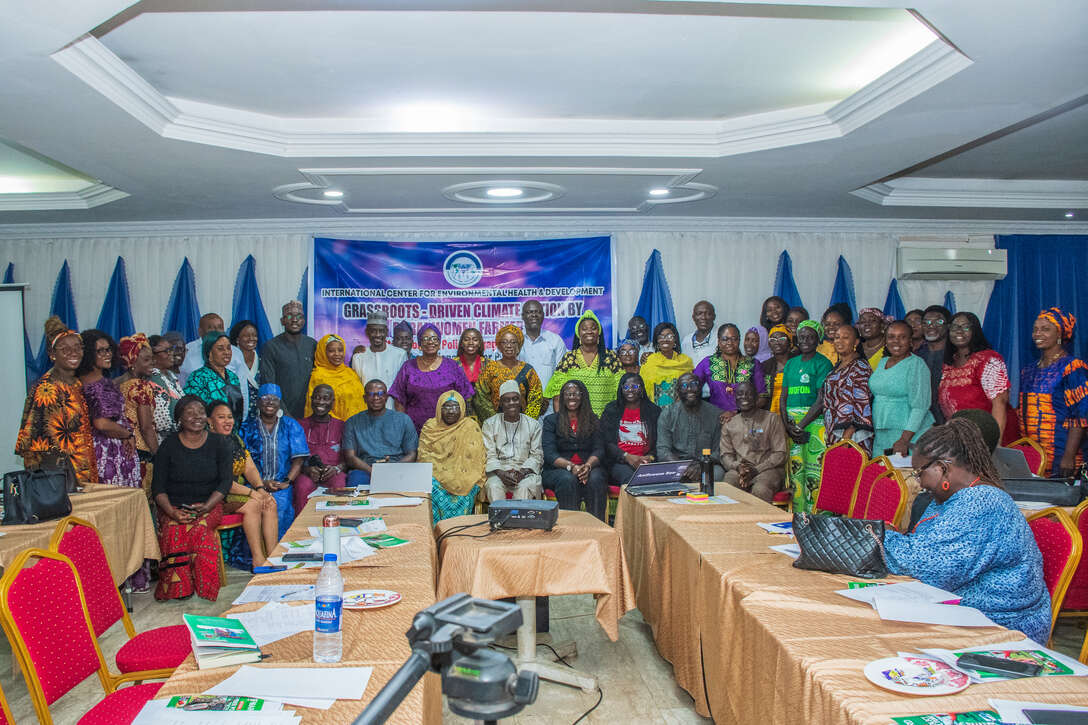
Preamble
The CSOs/NGOs Climate Finance Workshop and the Consultative Advocacy Forum on Grassroots-Driven Climate Action by Rural Women Farmers in Nigeria convened by ICEHD, brought together key stakeholders, including civil society organizations (CSOs), non-governmental organizations (NGOs), government representatives from the National Council on Climate Change, the Federal Ministries of Agriculture, Women Affairs, Environment, financial institutions, academia, and rural women farmers in Abuja, Nigeria, on the 20th and 21st of January 2025. The events aimed to address the pressing challenges of climate change in Nigeria's agricultural sector and explore innovative financing solutions to support grassroots climate action. Participants recognized the invaluable role of rural women farmers in climate resilience and adaptation efforts and underscored the need for increased support through policy advocacy, capacity building, and access to climate finance.
Objectives of the Workshop and Advocacy Forum
The workshop emphasized the significant role that rural women farmers play in driving climate action and promoting sustainable agricultural practices. It seeks to explore climate finance mechanisms that are accessible and specifically designed to meet the unique needs of grassroots women farmers. Furthermore, it aims to foster strong partnerships among various stakeholders to facilitate effective policy implementation and advocacy efforts. Recognizing the numerous challenges rural women farmers face in accessing climate finance, the workshop strives to identify these obstacles and propose practical solutions. Ultimately, it endeavors to develop actionable recommendations that can guide government bodies and development partners in their efforts to support grassroots-driven climate initiatives.
Deliberations and Observations
The discussions at the workshop and advocacy forum emphasized the following key issues:
Resolutions and Recommendations
Based on the deliberations, the following resolutions were adopted:
Conclusion
The workshop and advocacy forum reaffirmed the commitment of all stakeholders to advancing grassroots-driven climate action in Nigeria. It was unanimously agreed that rural women farmers are pivotal to achieving climate resilience and food security, and their inclusion in climate finance and policy initiatives is imperative. These women farmers call for sustained indigenous approaches and collaboration, resource mobilization, and policy coherence to support grassroots efforts in combating climate change.
Call to Action
Participants (women farmers, NGOs/CSO) urged the Nigerian government, international organizations, financial institutions, and development partners to prioritize the implementation of the outlined recommendations. It is imperative to create an enabling environment that empowers rural women farmers to lead in climate action initiatives.
Signed:
International Centre for Environment and Development (ICEHD)